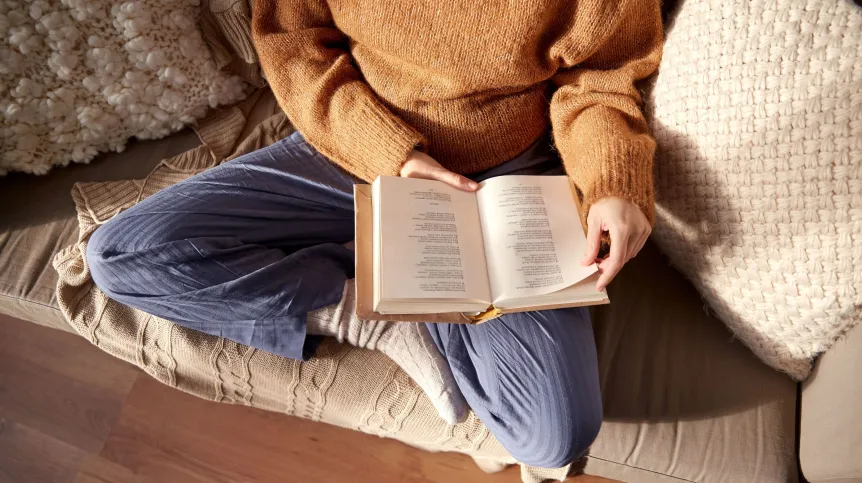
A new study from Adam Mickiewicz University in Poznań has found that poems generated by AI algorithms are generally rated lower than those written by humans.
The research, led by Dr. Maja Stańko-Kaczmarek and her team from the Faculty of Psychology and Cognitive Science, examined how 123 adult participants responded to a poem titled Everyday Life, which was randomly attributed to either a human author, an AI, or left as an anonymous piece.
The study, published in the Journal of Creative Behavior doi.org/10.1002/jocb.1513, found that across several key criteria, the respondents found AI-generated poetry to be less innovative, less beautiful, and less emotionally resonant.
The evaluations covered five categories: originality (the poem should deviate from the usual patterns and present a fresh perspective on a specific topic or motif), aesthetic value (it should arouse readers' appreciation for both its form and thematic message), emotional engagement of the reader, coherence (it should be logical and orderly, with a consistent motif that creates a coherent, compact and harmonious whole), and the difficulty of interpreting the poem (the content should be a challenge for the recipients, requiring intellectual and interpretative effort).
The poem selected for evaluation had not been created specifically for the purposes of the study. It was included with the consent of the author, who writes poetry as a hobby. The poem was concise, with simple rhymes, written in uncomplicated language, which was intended to increase the credibility of the AI authorship.
Less original, more difficult to interpret
Dr. Stańko-Kaczmarek said: ‘The results showed that poems attributed to AI were rated lower in terms of originality, aesthetic appeal and emotional engagement. This means that the respondents perceived them as less innovative, not containing as much beauty in their form and message, and evoking fewer emotional reactions.
This perception may result from the belief that AI is based on existing data, unable to create anything newer that fully reflects human experiences or emotions, which are often the essence of creativity.’
At the same time, the same poems were rated as more complex and more difficult to interpret. Stańko-Kaczmarek said that this apparent contradiction results from the fact that the difficulty of interpretation does not have to be directly related to originality, beauty or emotional engagement.
She added: ’AI generates content that may seem more analytical, which requires more intellectual effort from the reader to understand the message. Additionally, the lack of the possibility of an empathetic connection with the author - in this case, the algorithm - may make it difficult to fully engage in the interpretation of the content and lead to the work being considered less understandable and more difficult to interpret. This contrasts with the more direct and empathetic engagement noted in the case of works created by humans.’
The results showed no significant differences in the assessment of coherence between AI poems and those attributed to humans. This may be due to the participants' difficulty in correctly defining this criterion or the fact that both AI and humans can produce texts with a similar level of structural harmony.
In a situation where authorship was ambiguous, readers' opinions were evenly distributed between negative, positive and neutral.
Is AI creativity still art?
The study’s findings also touched on the broader philosophical question of whether AI-generated works truly be considered ‘art’. Human creativity, researchers argue, is deeply intertwined with personal experiences, emotions, and intuition—qualities that AI currently cannot replicate in the same way. This gap in perceived authenticity may explain why many participants rated AI-generated poetry lower in terms of originality and emotional depth.
‘As AI’s creative processes are driven by algorithms, readers instinctively notice the lack of lived experiences and personal insights in AI works,’ Dr. Stańko-Kaczmarek said. ‘This raises important questions about the authenticity and value of art created by machines.’
At the same time, Dr. Stańko-Kaczmarek believes that AI should not be viewed as a threat to human creativity. Rather, it can serve as an extension of human artistic potential. ‘AI is not operating in a vacuum—it builds upon human cultural achievements, and in doing so, it can help expand the boundaries of art and creativity,’ she said.
AI - an extension of human creativity
The researchers argue that AI has the potential to complement, rather than replace, human creativity. As a tool, it can support both artists and audiences by offering new ways to analyze styles, techniques, and artistic approaches. Historically, new technologies—such as photography, digital editing, and even the printing press—were initially met with skepticism before being embraced as valuable tools that advanced the arts.
‘AI can be the next step in this evolution, as long as we treat it as a complement to, not a replacement for, human creativity,’ Dr. Stańko-Kaczmarek said. ‘By collaborating with AI, creators and audiences alike can explore new possibilities and deepen their understanding of artistic expression.’
The study comes at a time when AI-generated art is gaining prominence, sparking ongoing debate about the intersection of technology and creativity. While concerns about the dehumanization of art persist, there is growing recognition that AI can serve as an ally in the creative process—pushing the boundaries of what is possible while still honoring the uniquely human elements of art.
In future research, Dr. Stańko-Kaczmarek and her team aim to explore how different types of AI-generated content—across genres and formats—are perceived by audiences. Their work could play a crucial role in shaping how society embraces AI's role in creative fields, offering a more nuanced understanding of the intersection between technology, art, and human experience.
The findings also echo similar studies on AI in literature, including recent work by researchers at the University of Pittsburgh, which found that AI-generated poetry was perceived as more understandable by non-expert readers, even when compared to works by literary giants like Shakespeare and Dickinson.
The results of the study were published in Scientific Reports (https://doi.org/10.1038/s41598-024-76900-1).
PAP - Science in Poland, Ewelina Krajczyńska-Wujec
ekr/ zan/ kap/
tr. RL













